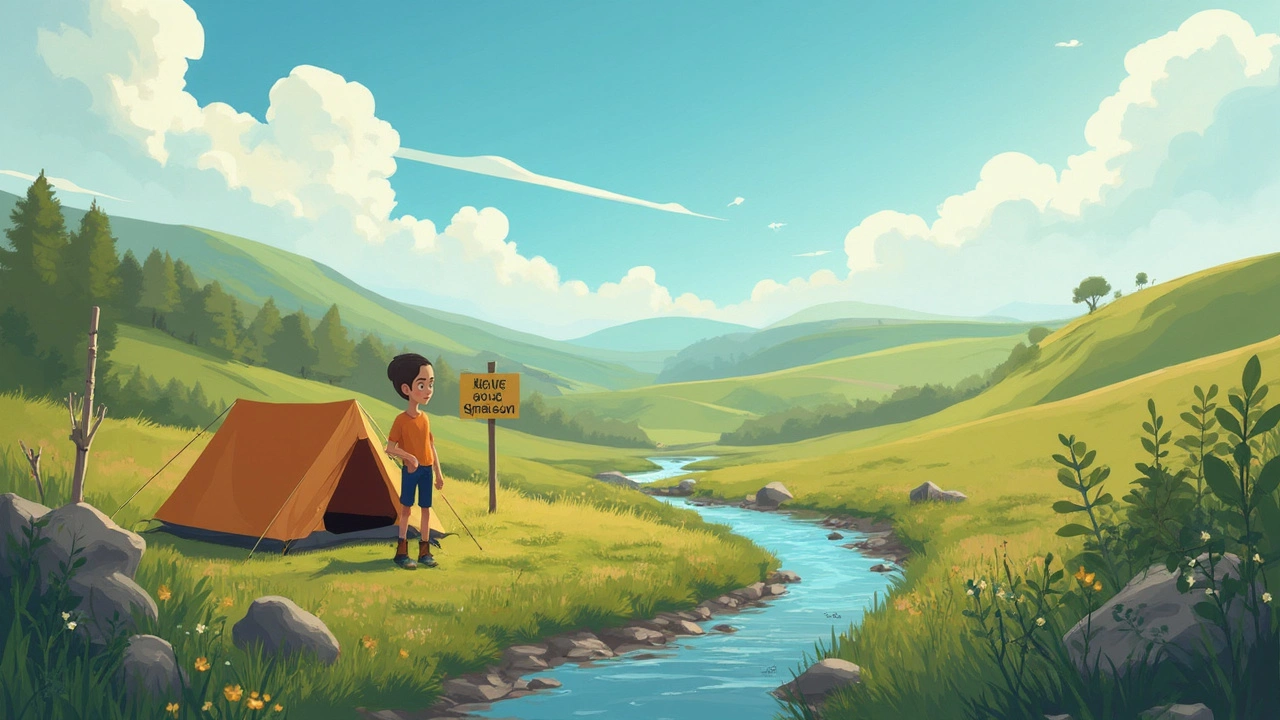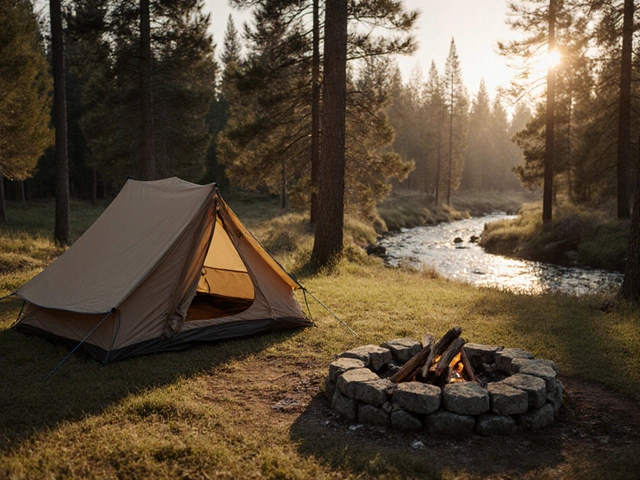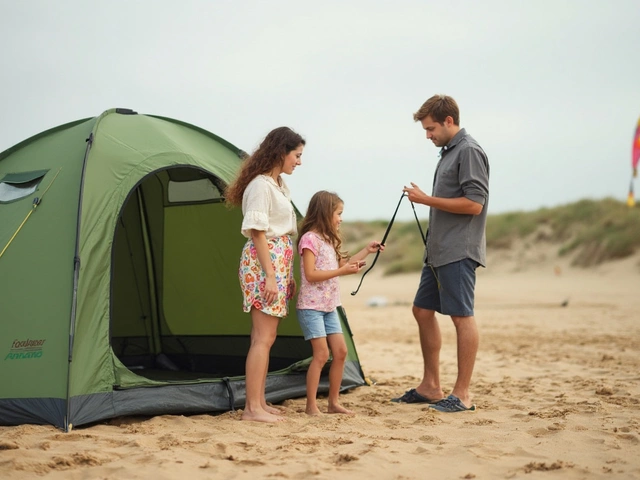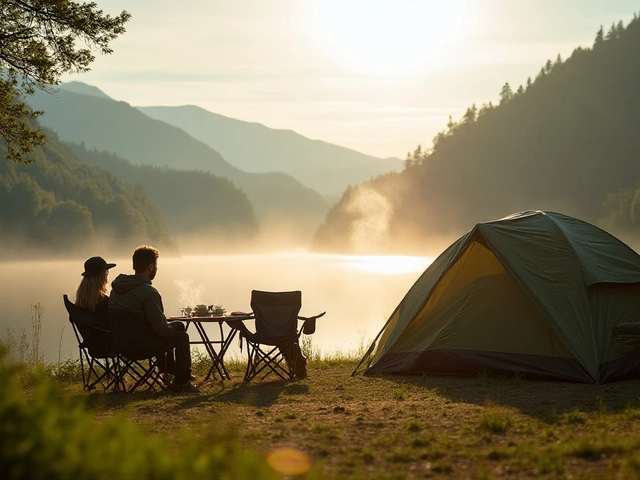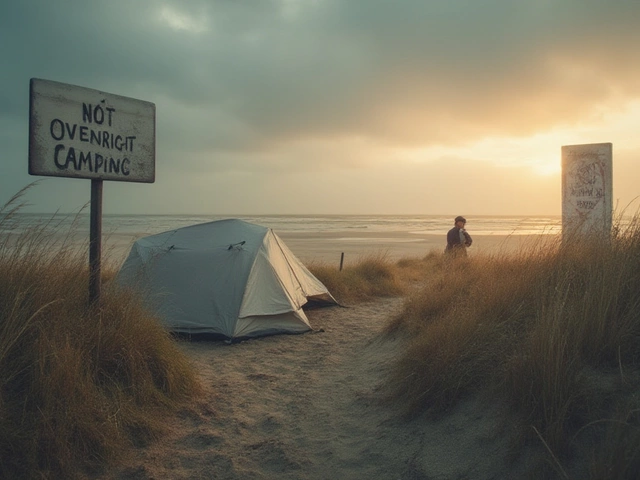So, you're out in the UK countryside, surrounded by nature, and suddenly nature calls loudly. What now? Can you just find a bush and let it flow? Well, it's not as straightforward as you might think.
First off, let's talk legal stuff—yep, the UK has some rules about where you can and can't go. Sure, you might not have the toilet police on your tail, but being responsible is key. Check if you're on public or private land, as trespassing isn't a good look.
Then there's the environment, which needs some love. Peeing in nature isn't harmful if you do it right. It turns out that urine can be a little salty for plants, so stick to rocky or barren areas where you’re less likely to disturb delicate ecosystems.
Your fellow campers appreciate some discretion too. Finding a spot far enough from campsites, trails, and water sources is essential. After all, nobody wants an unexpected surprise while enjoying their morning brew, right?
- Legal Considerations
- Environmental Impacts
- Choosing the Right Spot
- Respecting Fellow Campers
- Practical Tips for Outdoor Peeing
Legal Considerations
Thinking about peeing outside while camping in the UK? You might want to consider some legal aspects first. The rules can be a bit murky, so here's what you need to know to avoid any sticky situations.
Public vs. Private Land
The big question: are you on public or private land? On public land, you’re generally okay to do your business discreetly, as long as you're not near busy areas or, obviously, in plain sight. If you’re on private land, you better have permission from the landowner, or you might find yourself in a bit of a pickle.
National Parks and Nature Reserves
In the UK’s National Parks and nature reserves, the rules can differ from one spot to another. National Trust properties, for instance, really frown upon peeing outside their facilities, and getting caught could result in a fine. They prefer visitors to use the provided restroom facilities, which are usually well signposted.
Local Bylaws
Remember, some regions have local bylaws against urinating in public. This is especially true in urban-adjacent areas where foot traffic is higher. Check local guidelines if you're not way out in the wild.
| Public Urination Fines | Amount |
|---|---|
| General Public Area | £80 |
| National Parks* | Up to £500 |
Stay aware and plan ahead; find out about the specific rules wherever you pitch your tent. Remember that respecting the law is part of respecting the land and those who share it with you.
Environmental Impacts
When you're camping in the UK, peeing outdoors isn't just about comfort or convenience. It's also about making sure you're not harming the environment. So, let's dive into why this matters.
Urine's Composition: Urine is mostly water, but it does contain nutrients like nitrogen and phosphorus. While that's great for a compost bin, it's not so great when you're in the wild. Too much urine in one spot can start a nitrogen overload, which could harm some plants.
Choosing the Right Spots: Try to stick to rocks, gravel, or barren land when answering nature's call. Plant roots in fertile areas can absorb more nutrients than they need, which might not seem like a big deal but can affect plant growth over time.
Protecting Water Sources
Water quality is a big deal out there. That's why it's important to pee at least 30 meters away from rivers, lakes, and streams. This helps keep the water clean for wildlife and other campers. Remember, no one wants a swim in anything other than fresh water!
Wildlife and Ecosystems
Believe it or not, urine can change animal behavior. Wildlife might start relying on your campsite as a regular 'watering hole,' which is not healthy for them or safe for you. Keep the wild in wildlife by not peeing near burrows or nests.
Leave No Trace Principles
Following the 'Leave No Trace' principles is important anywhere you camp. This means respecting the land and leaving it just as you found it. When you pee, find a spot where it's likely to evaporate quickly, reducing the long-term impact.
By being considerate about where you take care of business, you're helping keep the campsites in the UK pristine. That's good news for everyone who loves the outdoors and wants to keep enjoying it!
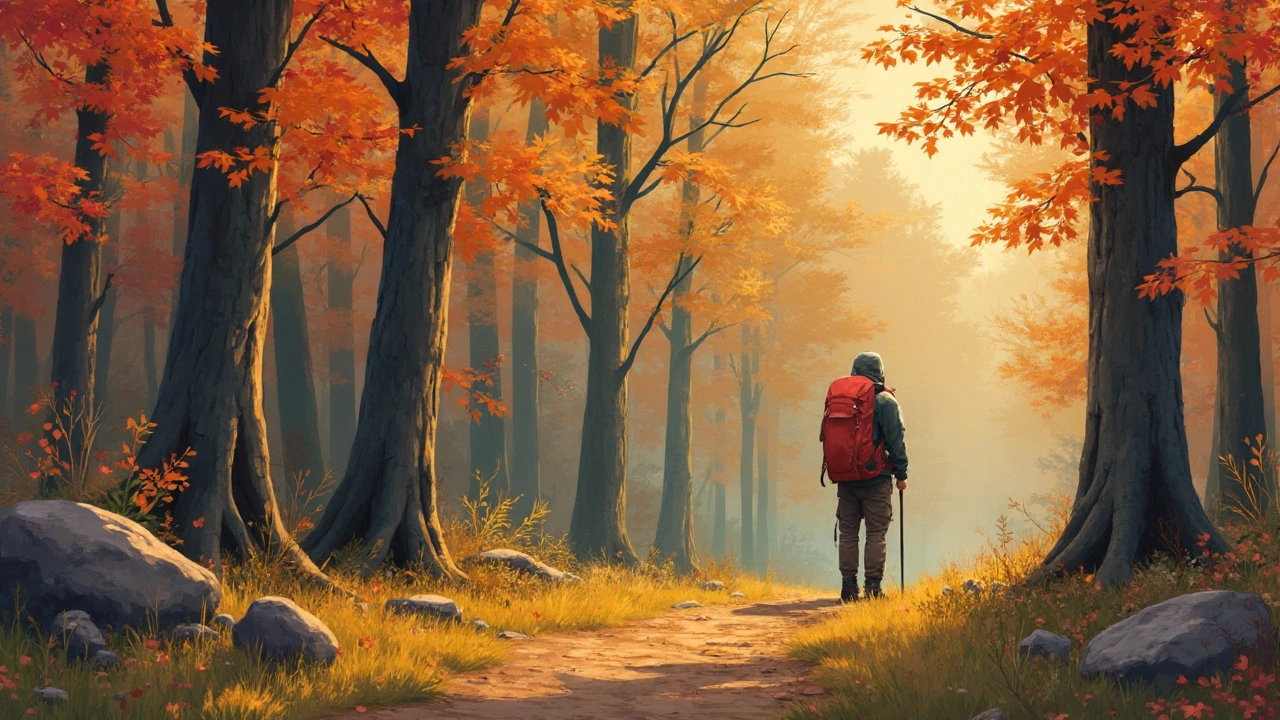
Choosing the Right Spot
When you're in the great outdoors and need to do your business, picking the right spot is more than just finding the nearest bush. It's about balancing the needs of nature and your own privacy. So, where exactly should you go? Let's break it down.
Respect Nature
First up, make sure your chosen site helps keep the environment clean. Avoid water sources like rivers and lakes to prevent any contamination. A good rule of thumb? Stay at least 30 meters away from any fresh water body. That’s roughly the length of a cricket pitch, and this distance helps keep the water you might later be drinking—or swimming in—safe.
Avoid Popular Paths
Ever stepped in something unpleasant while hiking? Yeah, let’s avoid that. Pick a spot away from hiking trails or campsites. Not only is this considerate, but it also gives you some much-needed privacy. A discrete spot means you can get the job done without unwanted spectators—animal or human!
Think About the Soil
Believe it or not, your pee can affect the soil! Opt for rocky or dry areas over delicate flora. This stops you from damaging any plants that might turn your sunny clearings to lush meadows.
“Outdoor etiquette isn't just about following rules; it's about respecting shared spaces.” — John Smith, Outdoor Ethics Expert
Keep It Clean
No toilet paper littering, please. Bring a small bag to pack out non-biodegradable waste. After all, leaving no trace is a core principle of campsite ethics in the UK. That means future nature lovers can enjoy the same beauty you found.
Fact is, knowing where to pee when camping in the UK can make a real difference to your experience—and others'. It's about being smart, respectful, and kind to the environment.
| Factor | Recommended Distance |
|---|---|
| Water Sources | 30 meters |
| Campsites/Trails | 100 meters |
Respecting Fellow Campers
When it comes to camping, it's not just about finding the perfect spot or the right gear. It's also about being a good neighbor. Peeing outside might seem natural (and it is), but there's a right way to do it that ensures everyone has a pleasant experience.
One of the basic rules is privacy. Nobody wants to stumble upon someone mid-relief, so find a secluded spot away from paths and campsites. A good rule of thumb is to go at least 30 meters away from any tent, trail, or water source. This keeps the area clean and prevents awkward encounters.
"Camping etiquette boils down to common courtesy and respect for others and the environment." - The Camping and Caravanning Club UK
Campsite tips also include watchfulness about cleanliness. Toilets at the main campsites are there for a reason, so use them when available. This limits environmental impact and maintains hygiene.
Noise and Smells
Another aspect is noise. If you’re heading into the bushes, let people around you know—not in a loud manner but subtly, so sudden noises don't alarm them. Once done, make sure everything looks as untouched as possible.
Smells can also affect those around. While urine itself isn’t overly offensive in small quantities, make sure the wind is in your favor when you choose your spot. With strong wind, even the smallest whiff can travel far.
Communicating with Fellow Campers
Sometimes a quick chat with your neighbors can go a long way. When you're camping in a camping UK site, making new friends is part of the charm. A little heads-up if you're going into the woods can avoid misunderstandings and lead to pleasant exchanges later by the campfire.
Respect is a two-way street. By taking these small steps, you're not just doing your bit for the environment but also making the outdoor experience enjoyable for everyone around.
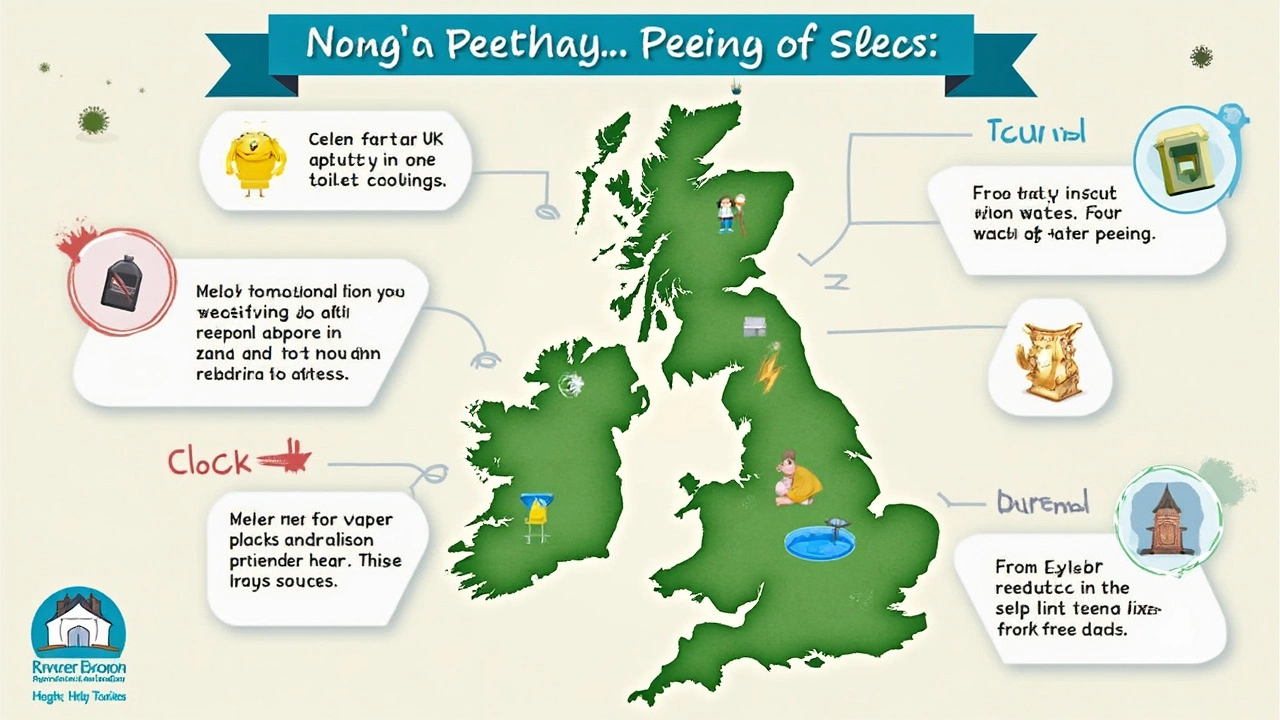
Practical Tips for Outdoor Peeing
Alright, let’s get down to business. Answering nature's call while camping in the UK isn't just about finding a hidden spot. Here's how to do it responsibly and with a touch of good old British respect.
Find the Perfect Spot
Pick a place that's at least 200 feet from water sources like streams or lakes. This helps keep the water clean and safe for everyone. Not sure how far that is? It's about the length of a football field, give or take.
Leave No Trace
Remember the golden rule of camping: leave no trace. It means you should aim to leave the area just as you found it. If possible, pee on rocks or bare soil rather than directly on plants. This minimizes any potential harm to the vegetation.
“The ability to access natural experiences supports stress reduction, encourages physical activity, and enhances mental creativity.” — Natural England
Respect Others' Privacy
When choosing your spot, be mindful of fellow campers. Find a location that's out of sight and away from paths or campsites. This is just good campsite etiquette.
Use the Right Gear
If you’re not comfortable going au naturel, there are plenty of products designed to help, from portable urinals to biodegradable wipes. These can make the whole process more convenient and hygienic.
Be Cautious in Open Fields
Open spaces can sometimes be deceiving. Make sure you're not in plain view of a nearby path or campsite. Crouch if you need extra cover—your dignity will thank you.
Taking these tips to heart will ensure your outdoor adventure stays enjoyable for you, the environment, and everyone else. Happy camping!
